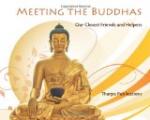Mr. Lawrence Bruner says: “If we take pains to water our birds during the dry season, they will be much less apt to seek this supply from the juices of fruits so temptingly at hand.” He suggests placing little pans of water in the orchard and vineyard.
There is another side to the same question which is worth considering. Not only does the agriculturist know how useful birds are to us, but every child can tell us of the pleasure they give. One does not have to be a poet to know the beauty of the birds. What would spring be without the bluebird, or June without the oriole? To the eye and to the ear alike they are a joy.
From a selfish point of view, then, it is folly to let the wholesale destruction of birds go on. We are losing more than we fully understand. But can there be no other motive than a selfish one? Have the birds no rights which we are bound to respect? Must their claim to life be based on the fact that they do us good or give us pleasure? We are hopeless tyrants if this is true. Let us not be content with the smaller question, What can the birds do for us? but ask ourselves the larger one, What can we do for the birds?
“The bravest are the tenderest.”
It is remarkable how many great men have been noted for their interest in birds and beasts. We have seen how devoted Scott and Dickens were to their pets. Daniel Webster’s dying request was that his beloved cattle might be driven by his window, so that he might see them once more. Abraham Lincoln often went out of his way to do a kindness to some weak or suffering creature. [Footnote: The following incident is related by one who knew Lincoln: “We passed through a thicket of wild plum and crab-apple trees, and stopped to water our horses. One of the party came up alone and we inquired: ‘Where is Lincoln?’
“‘Oh,’ he replied, ’when I saw him last he had caught two young birds which the wind had blown out of their nest, and he was hunting for the nest, that he might put them back in it.’”] A great German poet so loved the birds that he left a sum of money with the request that they should be fed every day on his grave.
Thoreau, who has written many beautiful books about nature, had a great love for the little wild creatures of the woods, and they in turn loved and trusted him. “Even the fishes came into his hand when he dipped it into the stream. The little mice would come arid playfully eat from his fingers, and the very moles paid him friendly visits. Sparrows lighted on his shoulders when he called them; the phoebe birds built their nests in his shed, and the wild partridge with her brood came and fed quietly beneath his window.
“After he had lived two or three months in the woods the wild birds ceased to be afraid of him, and would come and perch on his shoulder, and sometimes on his spade when he was digging.”
Amiel, a great French writer, said in his journal: “I have just picked up on the stairs a little yellow kitten, very ugly and pitiable. Now, rolled into a ball on a chair at my side, he seems perfectly happy and asks for nothing more. He followed me from room to room as I went to and fro. I have nothing for him to eat, but a look and caress satisfy him, at least for the present.




